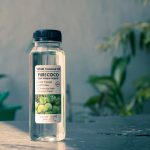
Oil pulling or swishing the mouth with oil is an ancient practice associated with Ayurvedic medicine. Advocates claim that the swishing oil ‘pulls toxins’ from the mouth to promote oral hygiene. Currently any benefits are thought to be derived from antibacterial activity of the edible oils used although the exact mechanism by which oil pulling might work is unclear.
The aim of this review was to assess the effectiveness of oil pulling compared to chlorhexidine and other mouthwashes in improving the plaque, gingival and bacteria count parameters in all populations.
Methods
A protocol for the review was registered with the PROSPERO database. Searches were conducted in the Cochrane CENTRAL, Medline, Embase and Scopus databases independently by two reviewers. Randomised controlled trials (RCTs) with a minimum duration of 7 days comparing oil pulling with edible oils compared to chlorhexidine and other mouthwashes were considered. Two independent reviewers selected studies and extracted data. Risk of bias was also assessed independently by two reviewers using the Cochrane Risk of Bias Tool 2 (ROB 2). The primary outcomes were plaque index (PI), gingival index score (GI) and modified gingival index score (MGI) with S. mutans and bacteria count as secondary outcomes. Outcomes were presented as standard mean differences (SMD) with 95% confidence intervals (CI). Meta-analyses were conducted using an inverse-variance random-effects model. The overall certainty of evidence was assessed using the Grading of Recommendations Assessment, Development and Evaluation (GRADE) approach.
Results
- 25 RCTs published between 2008 – 2022 involving a total of 1184 patients were included.
- 19 studies were conducted in India and one each in Egypt, Germany, Malaysia and Turkey. Two studies did not report the region.
- 17 of the 25 studies included patients with no reported oral health problems, six studies involved patients with mild to moderate gingivitis while one study included patients with xerostomia and one post-third molar surgery.
- 13 RCTs involved sesame oil, 12 studies used coconut oil, 3 olive oil, one study sunflower oil with one trial not reporting the type of oil.
- 24 of the 25 included studies were considered to be at high risk of bias in one or more domains of the risk of bias tool.
- 21 RCTs contributed to the meta-analyses: –
- Chlorhexidine significantly improved PI scores compared to oil pulling, SMD = 0.33 (95%CI: 0.17 to 0.49) [ 8 studies].
- Compared to non-chlorhexidine mouthwashes oil pulling showed a non-significant reduction in PI scores, MD = -0.02 (95%CI: -0.02 to 016) [ 5 studies].
- Pooled data suggests that oil pulling did not significantly improve GI scores when compared to chlorhexidine, SMD = −0.07 (95% CI: −0.65 to 0.51) [ 3 studies].
- Compared to non-chlorhexidine mouthwashes oil pulling showed a non-significant reduction in GI scores, SMD = -0.14 (95%CI: -0.77 to 0.49) [ 4 studies].
- Compared to chlorhexidine oil pulling showed a non-significant decrease in MGI, SMD = −0.07 (95% CI: -0.57 to 0.44) [4 studies].
- Oil pulling showed a significant improvement in MGI compared to non-chlorhexidine mouthwashes, SMD = −1.14 (95% CI: −1.31 to −0.97) [ 2 studies].
- Compared to chlorhexidine oil pulling showed a non-significant decrease in mutans count, SMD = 0.19 (95% CI: −0.23 to 0.62) [ 6 studies].
- The GRADE assessment of the certainty of the evidence was very low for all of the outcomes reported.
Conclusions
The authors concluded: –
There was a probable benefit of oil pulling in improving gingival health. Chlorhexidine remained superior in reducing the amount of plaque, compared to oil pulling. However, there was very low certainty in the evidence albeit the clinically beneficial effect of oil pulling intervention.
Comments
The authors registered the review protocol with PROSPERO and searched a good range of databases. Searches were restricted to RCTs with 25 being included with 21 contributing to the meta-analyses. However, the sample sizes are modest, ranging from 20 to 90 patients of short duration (maximum 30 days) and all except one study were considered to be at high risk of bias in one or more domains of the Cochrane RoB2 tool. The studies were very heterogenous and lacked detail on the volume of oil used and method of use and some studies prohibited toothbrush use. The review helpfully brings together a good number of studies on oil pulling for oral health. However, the limited size and quality of the included studies means that the certainty of the available evidence is very low so should be interpreted very cautiously. The review also demonstrates the superiority of chlorhexidine mouthwash over oil pulling so there is little evidence to recommend oil pulling at this time.Future studies need to be well-conducted and reported and of appropriate size and duration following international guidelines (Equator Network). The use of common outcome sets (COMET) and the regular reporting of adverse effects is recommended.
Links
Primary Paper
Jong FJX, Ooi J, Teoh SL. The effect of oil pulling in comparison with chlorhexidine and other mouthwash interventions in promoting oral health: A systematic review and meta-analysis. Int J Dent Hyg. 2023 Aug 28. doi: 10.1111/idh.12725. Epub ahead of print. PMID: 37635453.
Other references
Dental Elf – 3rd Apr 2017
Picture Credits
Photo by Rio Lecatompessy on Unsplash
